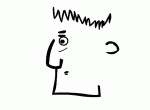Heterosexual, Homosexual, Bisexual, Pansexual... Does it really matter?
Heterosexual, Homosexual, Bisexual, Pansexual... Does it really matter?
I don't see a word for people who are sexaully attracted to brunettes and/or blonds.
Yes, it does.
Side Score: 2
|
 |
No, it does not
Side Score: 0
|
|
|
|
|
Whether or not you believe that all sexual orientations are equally acceptable, you can still believe that it helps to have these terms around. They describe concepts that people sometimes refer to, so they're not useless/meaningless. They're also one word descriptions, making them more succinct than something like "someone who is sexually attracted to a person of the same sex". Imagine trying to write a book about sexual orientation and not having any of these ____sexual words at your disposal! There are no one word descriptions of people who are attracted to brunettes or blondes only because such concepts are not referred to frequently enough for people to feel the need to coin words for them - although you do sometimes see makeshift words like "brunette-lover". You can bet that if there's a sudden craze over attraction towards people of a particular hair colour, such makeshift words will quickly enter into mainstream vocabulary. I know some people argue that discourse influences thought and behaviour, and therefore that talking about homosexuals/heterosexuals/etc leads to greater stereotyping. I'm sure that the way we talk does affect the way we think, to some extent. But the fact is that we can't eliminate every word in the vocabulary that delineates differences between groups - we'd be left with no language at all. Nor is this necessary. In modern times we call someone left-handed or right-handed without making any pejorative implications whatsoever; there's no reason why our culture can't shift to the point where we call someone homosexual or heterosexual without any pejorative intent. And then there's also the matter of the human need to seek an identity and find out where they fit into society. We love to label ourselves and other people: tall or short, fat or thin, smart or dumb, writing or speech or action oriented, morning or evening person, student or worker or retired, etc - because we want to figure out who we are, who we're like, and who we're not like. Gay/straight/bi/etc are just some of the many labels we like to use on ourselves and others for this purpose. I'm not saying that this is necessarily a good thing, but it's a deep human instinct and not one that will be erased anytime too soon. What I do think is a problem is that people tend to see sexual orientation as discrete or even mutually exclusive concepts: "Either I'm gay or I'm straight. Or maybe I'm part of that odd little group that calls itself bi." I think it would be more natural if people thought of sexual orientation as a more flexible idea, like your tastes in clothing or food or music - you can belong to more than one group, or even shift between groups over time. Side: Yes, it does.
|
No arguments found. Add one!
|


